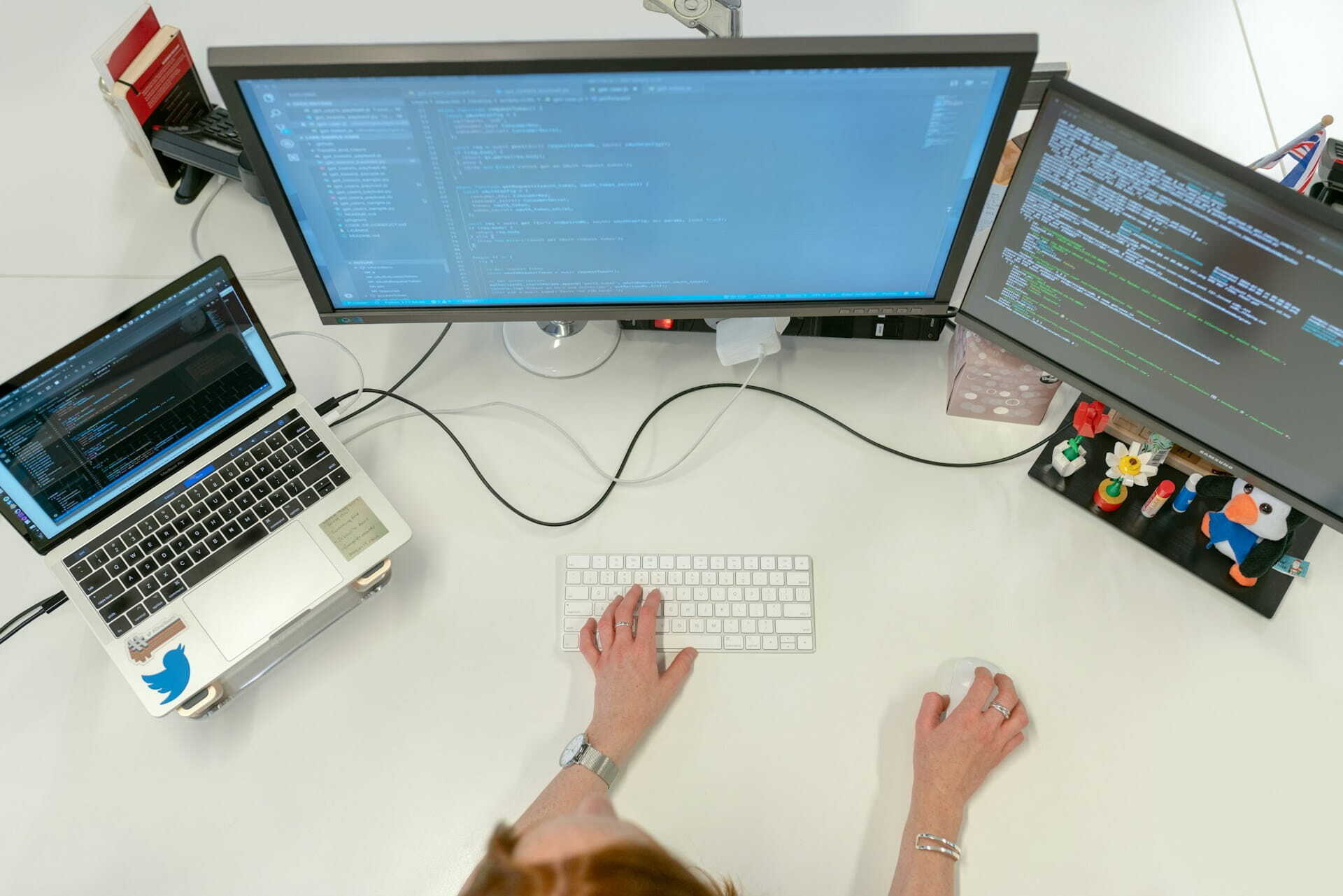18 March 2021 (updated: 4 December 2024)
4 Digital Health Trends for 2021 and Beyond - What's Next For Digital Healthcare
Chapters

After the 2020 digital health innovation boom, we’re guiding you through the biggest healthtech trends in 2021.
The digital health market & funding is growing and will continue to grow
According to Mercom Capital Group, total digital health funding (VC, debt & public) in 2020 has reached $21.6 billion globally, up more than 100%, compared to $10.6 billion in 2019. Top VC-funded categories of 2020 included: telehealth, data analytics, mHealth apps.
2020 unveiled that digitally connected health cannot be just a rough idea for the future, but rather a next step and a necessity to maintain core healthcare value chains. The tech is here, the key is digital health adoption and upkeep of innovative digital health solutions and healthcare and medical apps. But what will 2021 bring?
2021 Digital Health Trends driving digital transformation in healthcare
AI, data analytics & connected health
There’s a common saying that data is the new oil. But data is becoming more like sand; with more healthcare apps, wearables, and other data sources, data is everywhere. The true potential lies in the analytics: making sense of all these data points and unlocking the power behind all the data we gather. The right software, developed with AI and machine learning, can speed up data analytics, and enhance disease and treatment research, provide a more personalized experience to patients, and make the whole system more effective.
AI has the potential to drive the digital transformation in healthcare; its usage possibilities are incredibly broad and unveil a whole new perspective on healthcare and digital health. From already mentioned disease diagnostics (especially oncology), through providing personalized care and health monitoring for patients at home, up to drug and vaccine trials.
Evidence-based mental health apps
The pandemic, lockdowns, diminished face-to-face contact, have all left us with a mental health crisis. In January 2021, 41% of US adults reported anxiety and depressive symptoms, as opposed to 11% in 2019. In 2020, we witnessed a rapid development of a variety of mental health apps and cognitive behavioral therapy apps. From tele-psychotherapy, through asynchronous chats up to special therapy programs to guide people through uncertainty (anxiety, insomnia, mood swings). You can read more about recent mental health app developments & startups here: Top Mental Health & Wellness Startups in Scandinavia.
Research shows mental health teleconsultations results might be comparable to a regular face-to-face psychotherapy session. But virtual mental health apps have challenges that need to be addressed in order to leverage their advantages fully. Last year, when we noted a real boom of mental health apps usage, claims appeared that two industry giants, Headspace and Talkspace, are not sufficiently evidence-based tools.
The core 2021 challenge for mental health apps is to start the process of providing frameworks and systematic measures, so the apps can be based on evidence and research. As of now, not many mental health app companies and startups are publishing their raw data for research purposes.
The lack of communication between doctors and companies and the lack of publicly available data result in specialists’ reluctance to recommend mental health apps. Altering this could bring mental health apps closer to their possible reimbursement (Germany is the first country to allow reimbursement and prescription of healthcare apps), doctors’ support, and a wider patient adoption.
Wearables driving personalized healthcare
Wearables got into the mainstream a while ago, and they are still very much a booming market. According to Insider Intelligence, worldwide wearables shipment reached 440 million units in 2020, a 28% increase from 2019.
This growing demand from consumers and data potential has influenced the digital health industry to develop medically approved devices to provide better care to those in need and promote preventative health tracking. Apart from smart health watches, we’re talking wearable ECG monitors and blood pressure monitors.
Wearables are likely to significant impact healthcare systems' effectiveness (quicker symptom detection) and individual patients’ health management.
Digital preventive health
The pandemic brought health to the headlines and stimulated people to be more mindful of their health. Doctors’ routine check-ups have also changed and partially moved to digital to avoid the COVID-19 spread. These two factors alone influenced the way we think about prevention and preventative healthcare.
Consumer wearables and companion apps can already gather data throughout your whole day, and they are a sneak peek of what predictive and healthcare-approved tools could do. The future is clear: apps and wearables could collect data based on the person’s preliminary conditions and family history, react to any abnormalities in real-time and send everything to the doctors’ or your medical record. This would significantly reduce all “what ifs” and allowed doctors to have a comprehensive view of each patient, with an algorithm suggesting any unusual events.
Digitalization of preventive health is also a big step forward for people with chronic diseases that rely on constant monitoring and management of heart rate, blood oxygen, glucose, and a door-opener to their effective in-home care.
Apart from the evident benefits for the patient, preventive care can significantly diminish healthcare expenditures by freeing doctors and other staff. Digital preventive care means better management of recurrent patients’ checkups and monitoring emergencies.
Check out also:
- 16 Most Popular Types of Healthcare Software - See 16 types of emerging medical software systems that revolutionize the healthcare industry as we know it.
- 8 Trends in Telehealth App Development - Telehealth demand grew exponentially during the pandemic, but the advancements are not stopping with it.





